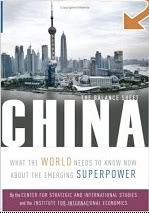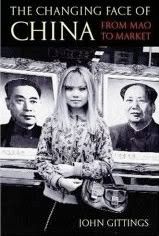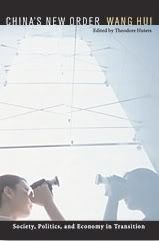US Intel Chief retells China threat, then retracts
(AFP/China Daily)
Updated: 2007-02-28 09:14
WASHINGTON - China's military modernization is aimed at achieving parity with the United States and not limited to its drive for reunification with Taiwan, the US intelligence chief said Tuesday.
Retired admiral Michael McConnell, the new director of national intelligence, said China could be a threat to the United States today because of its intercontinental nuclear missiles and will be an increasing threat as it modernizes its military. But he later retracted the remark.
US Intelligence chief Michael McConnell, testifies before the US Senate Armed Services Committee on current and future worldwide threats to the national security of the US on Capitol Hill in Washington, DC. [AFP]
"It's a matter of their building their military, in my view, to reach some sort of state of parity with the United States," he said. "So in a threat sense it becomes intention."
"They are a threat today, they will become an increasing threat over time," he told the Senate Armed Services Committee.
When Senator Carl Levin, the committee chairman, asked McConnell whether he meant to say China will be an increasing threat rather than have an increasing capability, McConnell said, "Yes sir. What I was attempting to say is they will improve their capability over time."
In a prepared statement surveying threats facing the United States, McConnell said China's rapid rate of military modernization would continue even if the Taiwan problem is resolved.
"The Chinese are developing more capable long-range conventional strike systems and short and medium range ballistic missiles with terminally guided maneuverable warheads able to attack US carriers and air bases," it said.
However, Thomas Fingar, the deputy director of national intelligence, said the Chinese "appear to have decided that we are not an enemy."
"They require a peaceful international environment in order to proceed with economic modernization in order to address their severe social problems, but they are a country with a history in their view of having been victimized by stronger external powers," he said.
"And they take national defense, including lessons learned out of Desert Shield/Desert Storm forward defense, to heart," he said.
China adheres to the 'path of peace'
China adheres to the path of peaceful development and is "an important force in the maintenance of peace and stability in the world and the region", Foreign Ministry spokesman Qin Gang told a regular press briefing in Beijing on Tuesday, February 27.
He was responding to US Vice-President Dick Cheney's recent criticism of China's alleged military build-up.
Cheney said during his visit to Sydney last week that "China's recent space test and continued fast-paced military build-up are less constructive and are not consistent with China's stated goal of a peaceful rise".
Rejecting Cheney's criticism, Qin said China's constructive role in the Six-Party Talks to make the Korean Peninsula nuclear free is clear evidence of China's commitment to world peace.
He reiterated China's stance against weapons of mass destruction and stressed that the country has been promoting the peaceful use of outer space.
"Our position on the peaceful use of space has been consistent as has been our opposition to the weaponization of space and the arms race in space," Qin said.
"We have also been making efforts to promote the conclusion of a treaty on banning weapons in outer space," he said. "We are willing to work with the US to ... properly handle our differences."
Qin also rejected charges made by Japanese politician Shoichi Nakagawa on Monday against China's military spending.
Nakagawa, the policy chief of Japan's ruling Liberal Democratic Party, went so far as to say that China's "rising military spending" may cause Japan to fall under its influence.
"If something were to happen to Taiwan in the next 15 years, then within 20 years, Japan might become just another Chinese province," Nakagawa was quoted as saying by the Sankei newspaper.
While reiterating that the Taiwan question is China's internal affair, Qin said China is a big sovereign country with a long borderline and coastline, and thus its maintenance of a certain military force is "beyond reproach".
Japan's territory and population is only 4 and 10 percent of China's, but it has maintained a larger military budget, Qin said, adding that China's per capita military expenditure is only 7 percent of Japan's.
"People have to ask why Japan repeatedly claims the 'China threat' while it is spending huge sums of money on the military," Qin said.***
Link




0 Comments:
Post a Comment
Subscribe to Post Comments [Atom]
<< Home